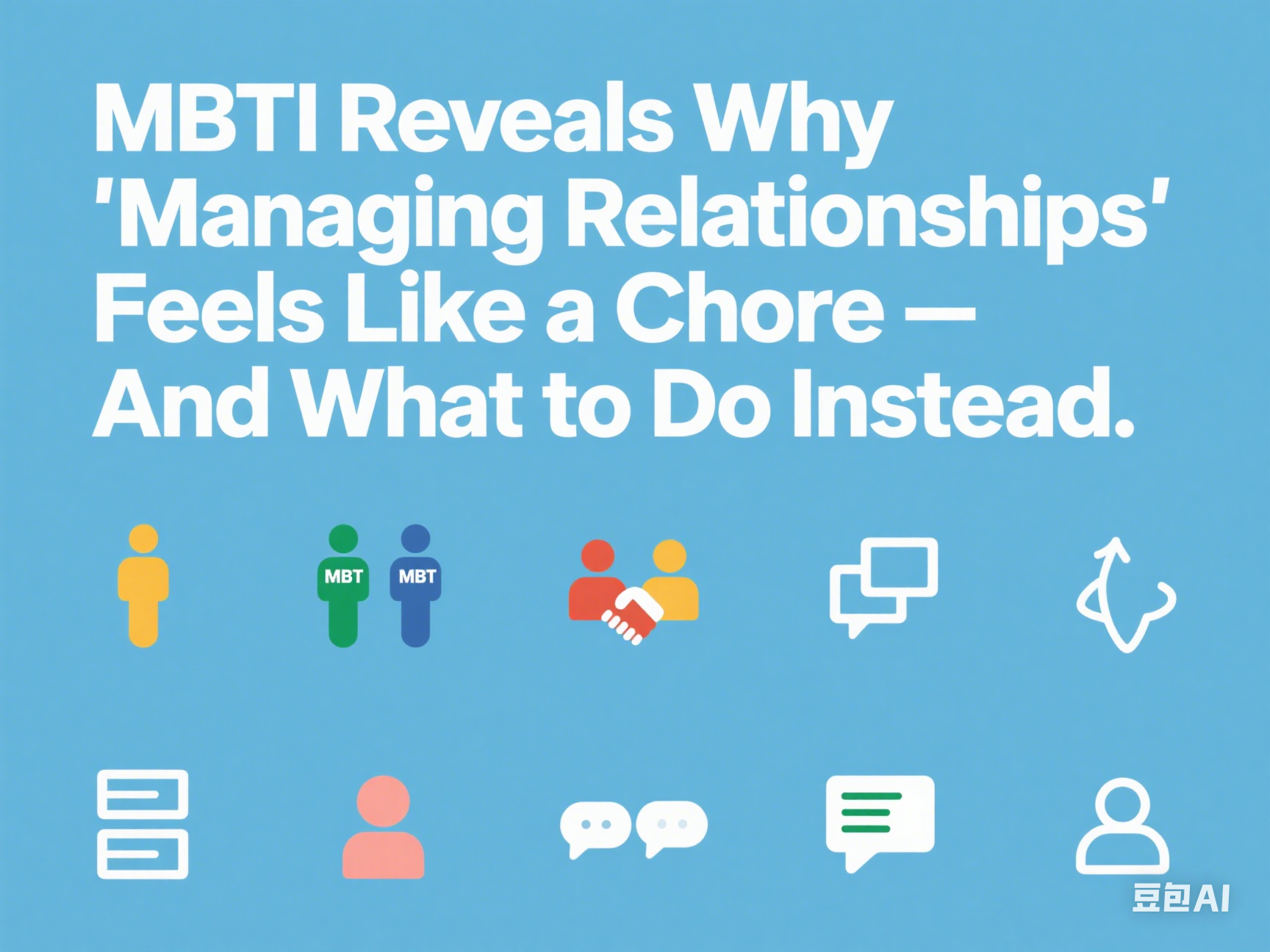MBTI Reveals Why 'Managing Relationships' Feels Like a Chore – And What to Do Instead

The idea of “managing relationships” or “maintaining emotional bonds” often feels artificial—like taking medicine on a schedule. For some personality types, especially introverted or highly independent ones (like INTJs or INFJs), this approach can seem exhausting, if not entirely pointless. But why does this happen? And is there a better way to navigate relationships without forcing yourself into unnatural social rituals?
The Problem with “Wholesale” Relationships
From an early age, many people—particularly those who value authenticity and depth—realize that group dynamics rarely align with their natural inclinations. The author’s childhood experience of constantly shifting social environments led to a preference for one-on-one connections over group assimilation. This mirrors common traits in MBTI types like INTJ or INTP, who often prioritize meaningful, selective interactions over superficial socialization.
Traditional advice about “networking” or “joining circles” often backfires for these types. Forcing yourself into group settings where hierarchies, power plays, or unspoken rules dominate can feel inauthentic. The pressure to “perform” in relationships—whether by currying favor with high-status peers or conforming to clique expectations—contradicts the core needs of many introverted or analytical personalities.
The Myth of “Relationship Labor”
The concept of “working on” relationships implies an inherent imbalance. If you’re the one putting in effort to “maintain” a bond, it often signals that the other party isn’t equally invested. This dynamic is especially draining for personality types who value reciprocity (e.g., INFJs, who crave deep mutual understanding, or ISTPs, who resist obligatory interactions).
Historically, societies have framed relationships as transactional: seeking “useful” connections (e.g., mentors, allies) or climbing social ladders. Phrases like “finding a贵人” (benefactor) or “swapping ties for gain” reveal this underlying calculus. Even terms like “maintaining” a marriage or friendship suggest relationships are fragile constructs requiring upkeep—a perspective that clashes with the organic, trust-based connections many MBTI types prefer.
A Better Approach: Selective, Authentic Bonds
For personality types resistant to forced socialization, the solution isn’t to mimic extroverted norms but to lean into innate strengths:
Quality Over Quantity: Focus on one-on-one connections where mutual interest exists naturally (common for ISFPs, INFPs).
Let Go of Obligation: If a relationship requires constant “management,” it may not be worth preserving—especially for decisive types like ENTJs or ISTJs.
Embrace Fluidity: Accept that relationships evolve. Clinging to fading bonds out of guilt contradicts the rational detachment of types like INTPs or INTJs.
The MBTI Lens: Why Some Types Reject Social Rituals
INTJ/INTP: See forced socialization as inefficient; prefer intellectual rapport over small talk.
INFJ/ENFJ: Resist transactional bonds; crave genuine emotional alignment.
ISTP/ISFP: Value autonomy; reject performative “maintenance” of ties.
Conclusion: Redefining Connection
“Managing” relationships often fails because it treats people as projects. For many MBTI types, the healthiest approach is to invest only in connections that thrive without manipulation—and to walk away from those that demand unsustainable labor. After all, the best relationships aren’t “maintained”; they grow naturally from shared values and effortless understanding.
By aligning your social strategy with your personality type, you can build a network that feels authentic—not like another item on your to-do list.




